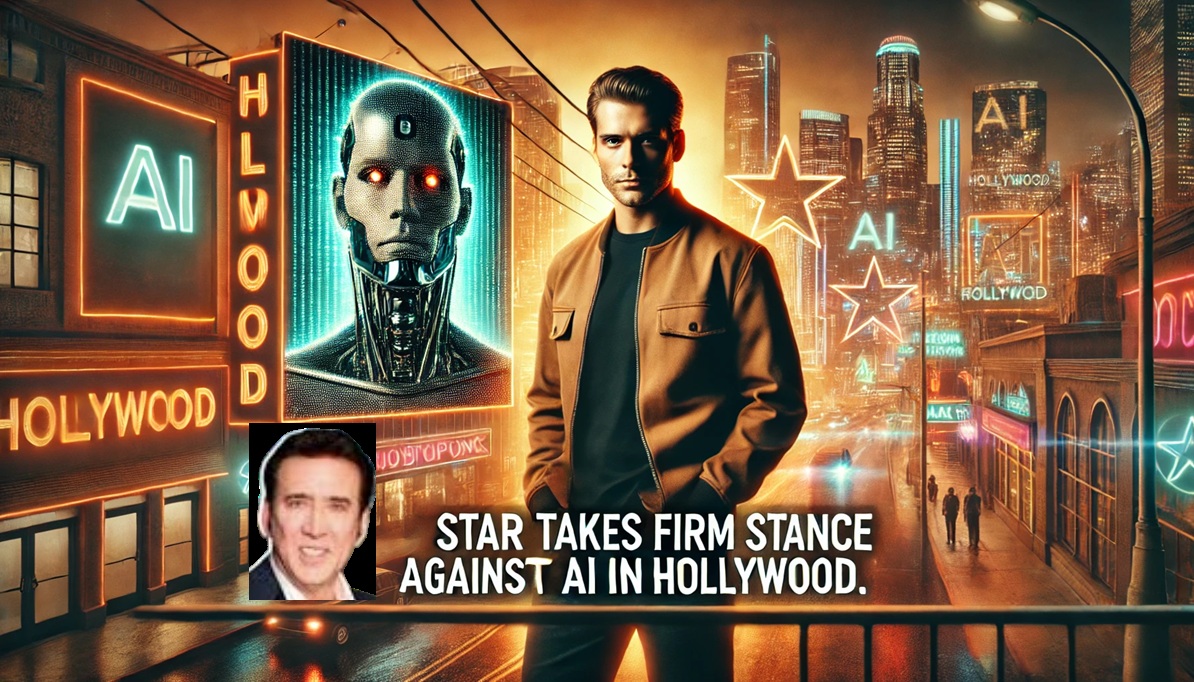Legendary actor warns of AI’s threat to cinematic storytelling
Nicolas Cage, known for his bold performances and distinctive screen presence, is now making headlines for an off-screen battle—the fight to keep artificial intelligence out of Hollywood. At the recent Saturn Awards, the Academy Award-winning actor delivered an impassioned critique of AI’s growing role in filmmaking, warning that it threatens the very soul of storytelling.
A Hollywood Legend Speaks Out
Cage, who has built a career on deeply emotional and often unpredictable performances, did not hold back in his remarks. “AI cannot replicate the human condition,” he stated, arguing that the heart of cinema lies in genuine human emotion and lived experiences—things that no algorithm can truly understand.
His comments come at a time when AI-generated scripts, digital actors, and deepfake performances are becoming increasingly common in the industry. While some filmmakers see AI as a tool for efficiency and cost-cutting, Cage sees a future where machine-generated content replaces the artistic integrity that defines film.
The Risk of Machine-Made Stories
Cage’s concerns are not unfounded. With studios investing heavily in AI technology, there is growing fear that profit-driven algorithms will prioritize mass production over meaningful storytelling. He warned that if AI becomes widely adopted in film, audiences could see a shift towards formulaic, soulless content that lacks the depth and authenticity of human-driven cinema.
This sentiment echoes the fears expressed during last year’s Hollywood strikes, where writers and actors fought for protections against AI replacing their roles. The Writers Guild of America (WGA) and SAG-AFTRA have already taken steps to limit AI’s impact, but Cage’s speech suggests that the battle is far from over.
A Call to Preserve Human Creativity
Beyond the economic and legal ramifications, Cage’s critique touches on something more profound—the essence of human storytelling. Films have always been a reflection of human experiences, struggles, and emotions. Cage argues that outsourcing this art form to machines strips it of its depth, making it a mechanical process rather than an emotional journey.
“It’s not just about actors or filmmakers losing jobs,” Cage said. “It’s about losing something irreplaceable—the magic of human creativity.”
What’s Next for AI in Hollywood?
Despite his opposition, AI’s presence in entertainment is growing. Some studios have begun experimenting with AI-generated scripts, voice replication, and digital doubles for actors. However, the backlash from creatives like Cage suggests that Hollywood is far from ready to accept an AI-driven industry.
As AI continues to evolve, the debate between technological advancement and artistic integrity will only intensify. For now, Nicolas Cage remains a vocal advocate for keeping cinema human—passionate, unpredictable, and deeply personal.
But will Hollywood listen?
